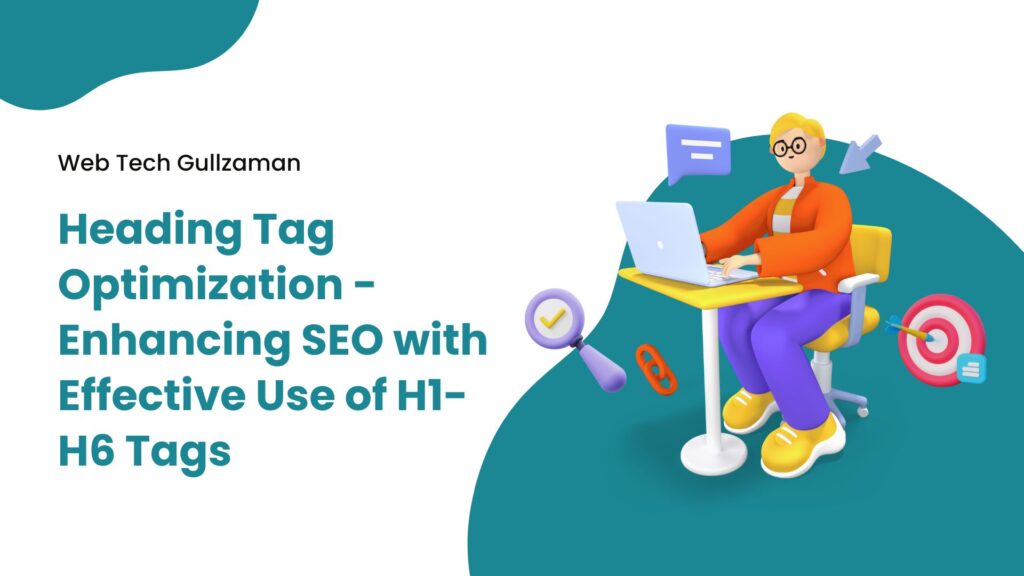Introduction of Heading tag optimization
In the realm of SEO, heading tag optimization plays a crucial role in optimizing content for search engines. Understanding and effectively utilizing H1-H6 tags can significantly impact a website’s visibility and search engine rankings. The strategic use of headings plays a pivotal role in content optimization. Understanding how to employ headings effectively can significantly impact a website’s visibility and search engine rankings.
Understanding the Significance of Header Tags
1. The Role of H1 Tag
The H1 tag signifies the primary heading of a webpage, conveying its main topic or theme. It holds significant weight in SEO, offering search engines a clear indication of the page’s subject matter.
2. H2-H6 Tags for Subheadings and Hierarchical Structure
H2-H6 tags serve as subheadings, contributing to the hierarchical structure of content. These tags organize information, allowing search engines to comprehend the content’s structure and relevance to user queries.
Effective Use of H1-H6 Tags for SEO Enhancement
1. Clarity and Relevance in H1 Tags
Utilizing H1 tags effectively involves clarity and relevance. Craft H1 headings that succinctly encapsulate the main content theme while incorporating targeted keywords to signal relevance to search engines.
2. Organizing Content with H2-H6 Tags
H2-H6 tags aid in organizing content hierarchically. Employing descriptive and keyword-rich subheadings (H2-H6) enhances readability and allows search engines to understand the context and structure of your content better.
Strategies for Optimal Header Tag Optimization
1. Consistency Across Header Tags
Maintain consistency in utilizing header tags throughout your content. Following a consistent pattern (H1 for main headings, H2-H6 for subheadings) creates a structured and user-friendly experience.
2. Keyword Relevance and Density in Header tags
Strategically include targeted keywords within header tags. However, avoid overstuffing or forcing keywords. Aim for natural integration that aligns with the context and enhances readability.
Impact of Header Tag Optimization on SEO
1. Improved Crawlability and Indexing
Optimizing header tags enhances a website’s crawlability. Clear and well-structured headings facilitate search engine crawlers in comprehending and indexing content more effectively.
2. User Experience and Engagement
Well-optimized header tags contribute to a positive user experience. Clear headings improve readability, guiding users through content and encouraging prolonged engagement.
Headings optimization (including H1-H6 tags) is a fundamental aspect of effective SEO practices. Utilizing these tags strategically, ensuring precision, relevance, consistency, and keyword optimization, significantly impacts a website’s search engine visibility and user experience.


